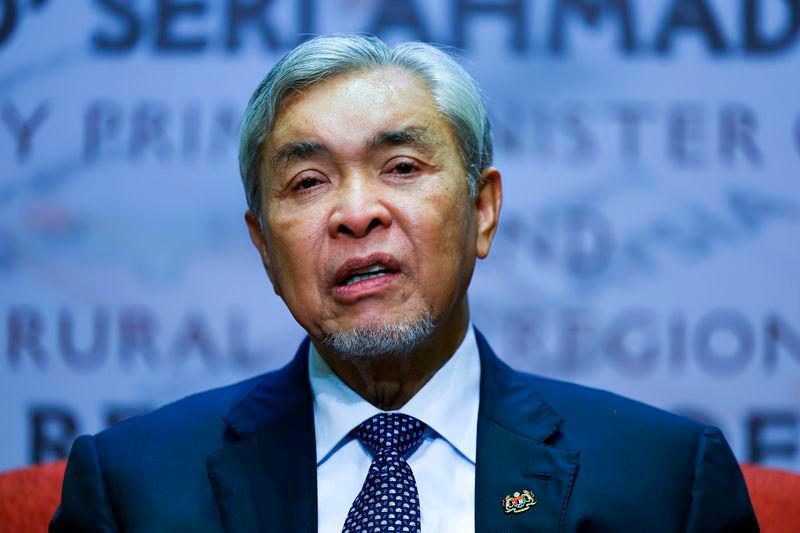PUTRAJAYA: The first phase of the Halal Industry Master Plan (HIMP2030), covering the period from 2023 to 2025, has recorded encouraging achievements with an implementation rate of 89.7 per cent, said Deputy Prime Minister Datuk Seri Dr Ahmad Zahid Hamidi.
Ahmad Zahid, who is also the Halal Industry Development Council (MPIH) chairman, said that during this period, the halal industry contributed RM149 billion to the Gross Domestic Product (GDP), while halal exports reached RM61.8 billion.
“This achievement is a clear indication that our halal industry development direction is on the right track and is gaining increasing confidence not only domestically, but also in international markets,” he said in a statement after chairing the MPIH Meeting No. 1/2025 here today.
The meeting, attended by representatives from 15 federal ministries and state governments, served as a key platform to coordinate policies and strategic actions aimed at strengthening Malaysia’s position as a global leader in the halal industry.
Ahmad Zahid said Malaysia continues to strengthen the halal ecosystem through the expansion of Halal Parks, which now total 14 strategic halal parks spanning 200,000 acres nationwide. As of the first quarter of 2025, these parks have recorded a cumulative investment of RM3.8 billion.
“This proves that the competitiveness of our halal ecosystem continues to be a key attraction in the regional investment landscape,” he said.
Following this, Ahmad Zahid urged all state governments to submit specific intervention plans to enhance their respective halal parks, especially those still facing low industry participation rates.
In line with the government’s aspiration to boost investment value and stimulate employment in the halal sector, he said MPIH has introduced a new framework for HALMAS (Halal Malaysia)-certified Halal Industrial Parks, which is more dynamic and aligned with the National Investment Aspirations.
Under this framework, Malaysia is targeting RM25 billion in cumulative halal sector investment by 2030, supported by infrastructure development initiatives, improved governance and the strengthening of more competitive investment incentives.
“The government is also reviewing the formulation of a Bill of Guarantees, offering investor-friendly incentives, integrating HALMAS services into the Malaysian Investment Development Authority’s Digital One-Stop Portal, and introducing the HALMAS Mark of Excellence as a symbol of global quality and standards,” he said.
Today’s meeting also saw the launch of the Women in Halal Industry initiative, a joint effort aimed at empowering women’s roles in the national halal ecosystem and recognising their contributions across various stages of the industry value chain.
Led by Deputy Minister of Women, Family and Community Development Datuk Seri Noraini Ahmad, in collaboration with Halal Development Corporation Bhd, the initiative is expected to provide greater opportunities for women to shine in the sector.









